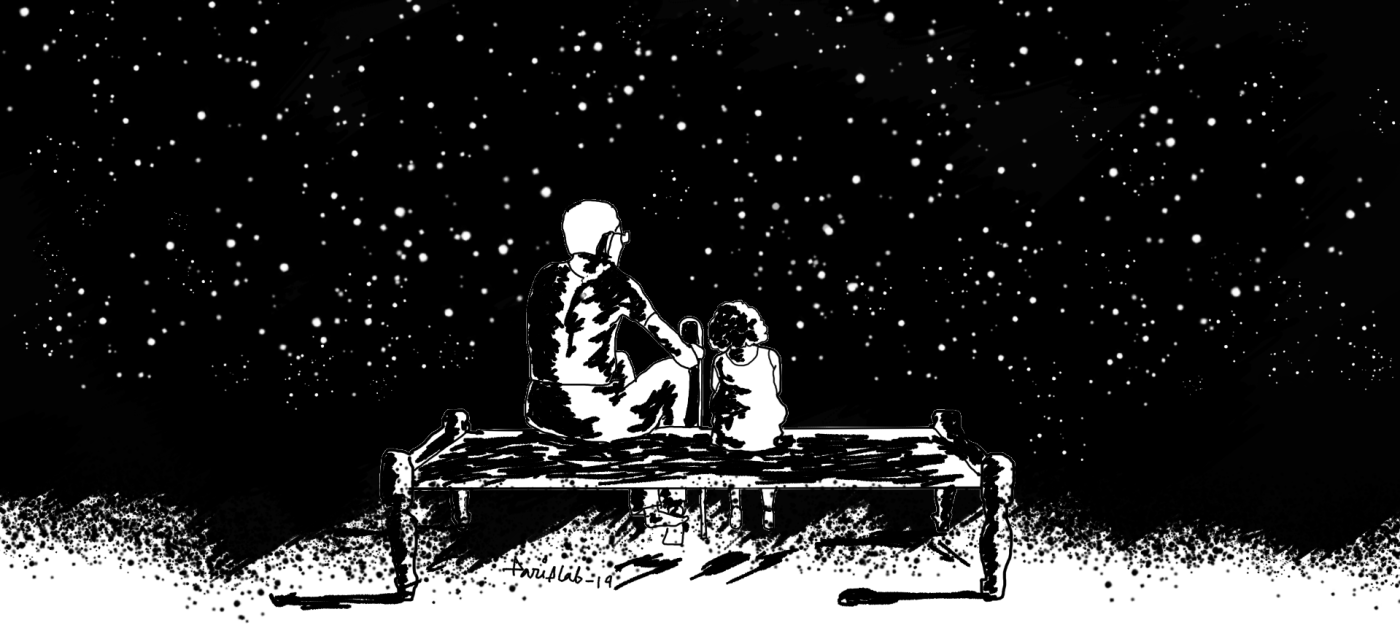Some months ago, I was sorting out old papers at home when I came across some letters written in Urdu. Those letters belonged to my grandfather. The colour of those beautifully carved words had faded, but their essence remained alive in my memory. They reminded me of my childhood days. I have some great memories of making trips to the post office – sometimes to post a letter and sometimes to fetch some postal stamps.
My grandfather hailed from Rawalpindi, now in Pakistan. Urdu was culturally very prominent in the pre-Partition era. My grandfather, Papaji, mostly spoke in Punjabi, but Urdu’s strong influence was visible in his spoken Punjabi. It was the dominant language of communication. During those days, people from all religious backgrounds communicated in this language.
I was fascinated by the language. Urdu is a language of love, after all. “Urdu adab tee mohabbat di bhasha hai (Urdu is a language of respect and love),” my grandfather used to say.
I remember how we huddled around him whenever he received a letter. He would lovingly narrate some snippets to us. Papaji was a great storyteller. He acquainted us with the Punjab of the bygone era, and its culture.
Also read: My Grandfather’s Bedtime Tale of Tolerance
He told us tales of Partition – accounts of bloodshed, hate, and loss. Papaji often used to say, “Those were the days. We left behind so much.” I could sense pain, loss, cultural uprootedness in his voice. Even after the Partition, Urdu remained a preferred language of correspondence with his brothers and sisters through the letters they exchanged. I suppose language served an essential link with his roots that was otherwise broken by the political upheaval.
I remember how my grandmother, Mummyji, took some old utensils, books, and knick-knacks from the old metal trunks during her annual cleaning. Among them, there were also many books written in Urdu. These were some treasures that they had carried along as they departed from their motherland. She hardly used them, but she cherished them lovingly. These treasures were undoubtedly a source of amusement for us and security for her.
Even though I had heard so many stories, I never got a chance to visit my ancestral home in Pakistan. My eagerness to learn about my roots and its culture ignited my interest in the literature of that era. As I grew, I extensively read Sadat Hasan Manto and Ismat Chughtai. I wish I could read these stories in their original language. These translated versions nevertheless, gave me a glimpse of the bygone era, offered me a chance to understand my roots to some extent. These stories left a strong impression on my mind.
I hope someday I learn to read and write in Urdu. That would help me access the literature written in Urdu. I may also understand the nuances of my culture and its language more effectively.
Our generation still had a fair exposure to Urdu. My spoken Hindi still has a substantial impact of Urdu on it, I can admit proudly. Thanks to television programs on DD national like Mirza Ghalib, Bollywood films and songs that enriched our vocabulary. I have grown listening to ghazals. Ah! I still remember the lovely lyrics.
I am afraid, these days our connection with Urdu is getting weakened. Some forces have pushed this language to the margins. My heart aches when I see the unfortunate events that are leading to its marginalisation. We should not equate a language with religion, after all. Papaji would have been very sad to witness the demise of this language if he was alive. Urdu and its influence will remain etched in my memory forever. It will keep reminding me of my loving Papaji and Mummyji.
Featured image credit: Pariplab Chakraborty

